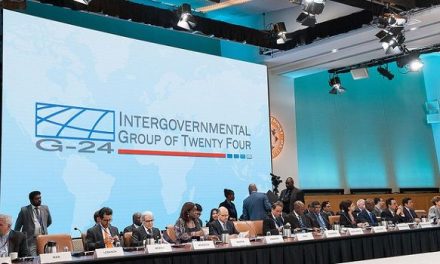
Fuel price increase – Motorists spared the full impact

By Klaus Schade, Research Associate at the Economic Association of Namibia
The Ministry of Mines and Energy announced a fuel price increase of N$25 cents per litre for petrol and diesel country-wide with effect of 1 August 2018.
The fuel price increase is caused by the increase in the fuel tax by the same amount as announced by the Minister of Finance in his budget statement on 7 March 2018. The fuel tax increase became effective on 4 July 2018, but was only passed on to the consumer with the current pump price increase.
It is the third consecutive fuel price increase for petrol and the fourth for diesel. Prices were kept stable for six and five months between December 2017 and May and April 2018 for the two products respectively. Petrol prices for Windhoek have increased by 7.9% and diesel (50ppm) prices by 10.3% since the beginning of the year. Compared to August 2017, petrol and diesel prices are 14.6% and 24.7% higher. They also exceed the previous peaks in June 2014, when petrol cost N$12.51 per litre and diesel N$13.15 per litre.
In between, prices dropped as low as N$9.81 per litre for petrol in March 2015 and N$9.80 per litre for diesel in May 2016. Petrol cost now N$12.97 per litre and diesel N$13.36 per litre in Windhoek.
Despite the recent increases in fuel prices, they remain below prices in neighbouring countries such as South Africa, Zambia and Zimbabwe.
Prices in a market economy indicate the degree of scarcity of goods and services. Price fluctuations are therefore expected to result in a change of consumption behaviour. Higher prices for fuel if lasting longer periods of time should therefore lead to the use of more fuel-efficient equipment, more efficient use of transport equipment (car-pooling, better trip planning), a shift to non-motorised modes of transport for shorter distances (walking, cycling) and eventually the move to other forms of ‘fuel’ than oil products.
Electric vehicles and vehicles running on hydrogen are on the rise globally. Some countries have already set deadlines for the phasing out of combustion engines by the year 2040. Namibia has the chance to be the first major mover on the African continent to support a major shift to e-vehicles including e-scooter, e-bikes etc. that are well suited for relatively short daily trips in urban areas.
They can be re-charged during working hours, lunch breaks or at home during night. Namibia is endowed with renewable energy sources to recharge the batteries. Since the country is also endowed with lithium, it should be explored whether it is not viable to produce lithium-ion batteries that power e-vehicles.
The continuous subsidisation of fuel could delay necessary adjustments in transport behaviour. Government could therefore consider to use the National Energy Fund to fund investment necessary to support the shift to e-vehicles and or hydrogen, such as recharging stations at public places.
Furthermore, since the Act stipulates that the Fund can be used for research, more resources should be made available for research into more sustainable forms of transport and transport equipment, such as the e-taxi developed by the Namibia University of Science and Technology.
Hence, rising fuel prices provide the opportunity to chart the way forward for an environmentally-friendly and sustainable transport sector. Not least, this will support Namibia’s efforts to achieve the Agenda 2030 – the Sustainable Development Goals, in particular SDG 13 that aims at combatting climate change.










































